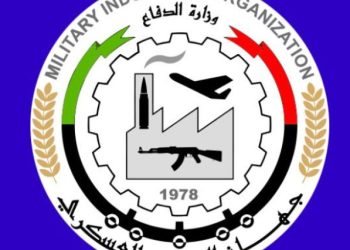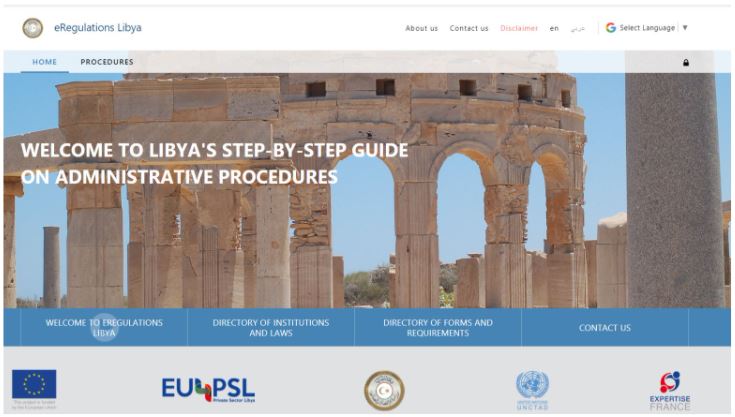By Libya Herald reporter.
Malta, 18 January 2015:
The United States has agreed to safeguard Libyan ‘’domestic and overseas assets from being used . . .[restrict]to finance terrorism or war in Libya’’.
The agreement came at the end of a three day visit by the Central Bank of Libya (CBL) Governor, Ali Salem Hibri, and the Chairman of the Libyan Investment Authority (LIA), Hassan Buhadi.
Hibri and Buhadi are the appointees of the House of Representatives (HoR) and Abdullah Thinni government, the only internationally recognized legislature and government in Libya.
It was also agreed that the aims of the 17 February Revolution, and the reasons why the general Libyan populous came out in its support, were ‘’democracy, social justice and the rule of law’’ and that that includes the respect of ‘’the will of the Libyan people in choosing their representatives’’.
It was also agreed that ‘’stabilization of security is the priority’’ in Libya so as to enable the achievement of agreed economic goals. Respecting the will of the Libyan people and their institutions, it was agreed, also extended to safeguarding the ‘’independent roles of institutions’’ such as the CBL, LIA and NOC.
As previously reported by Libya Herald, the visit that took place between 13-15 January, included meetings with the State Department, the Treasury Department, the Whitehouse, the IMF and the World Bank. Meetings were also held with the USLBA as well as a number of Think-Tanks and NGO’s.
Discussions in Washington covered the latest situation in Libya, UNSMIL’s efforts at the Geneva dialogue talks, efforts to achieve security and stability in Libya and Libya’s acute economic situation exacerbated by the fall in international crude oil prices.
In conclusion of the three day meeting, the Libyan and US counterparts agreed on seven general points of reference:
1-The confirmation that the Libyan citizen rose in their revolution for the purpose of achieving democracy and social justice and the rule of law and that these are principles that everyone has been invited to respect and they are considered as a basis for confidence-building .
2-The emphasis on the importance of dialogue as a key channel for confidence-building in the context of the principles that respects the will of the Libyan people in choosing their representatives and subsequent sovereign powers in the important institutions such as the Central Bank of Libya, the National Oil Corporation and the Libyan Investment Authority.
3-The emphasis that the protection of the Libyan people requires the respect of their will in the management of assets or funds in a manner that achieves the interest of the country and the Libyan people, and that the calls aimed at attempts to freeze funds or assets is aimed at embargoing the Libyan citizen and increasing their suffering and putting the country in a state of hyperinflation. All of these malicious calls and attempts are aimed at destabilizing the Libyan state institutions and therefore, they require no response.
4-The emphasis on the importance of the role of the Central Bank of Libya in containing the current crises in terms of providing the required limits in safeguarding the rights of citizens in terms of incomes, subsidized goods, overseas students funds and Libyan embassies, payments for overseas medical treatment for cases that require it, as well as working seriously in containing the impact of these policies on the national economy.
5-The agreement with the International Monetary Fund and the World Bank on the continued cooperation in building a scientific framework for reforming the Libyan economy and the support of development hubs in a way that will benefit from oil resources to enable Libya to come out of the rentier economy and transform it into a diversified economy capable of maintaining a permanent sustainability of renewed resources.
6-The stress that stabilization of security is the priority that realizes the launch of the previously stated points, emphasizing the need to exert all possible efforts in this framework due to its importance in stabilizing the country and creating development.
7-All parties emphasized their willingness to provide the necessary support to Libya’s economic and financial institutions, such as the CBL, LIA and NOC, so that they are able to preserve their sovereignty and fully perform the role entrusted to them. It was also agreed that consultations and meetings would continue so as to ensure the implementation of the commitment of the participating parties in supporting the mentioned institutions, and developing the appropriate strategies to preserve Libya’s domestic and overseas state assets, and prevent their use to finance terrorism and war in Libya.
It is also worth keeping in mind that the US authorities had also met with the sacked CBL Governor Saddik Elkaber in December, who is recognized by the General National Congress/Libya Dawn faction, and not by the HoR. Elkaber was sacked in September 2014 because he had refused to turn up to an HoR hearing in Tobruk, an action that was interpreted as his non-recognition of the HoR.
The HoR was also annoyed by Elkaber’s blocking of the 2014 budget which he had referred to the CBL’s legal department. He had felt that the budget was too large, leading to an increased deficit due to Libya’s low oil revenues and the budget’s over optimistic projections of oil, tax and customs revenues.
El-Kaber saw it as the neutral role of the CBL to protect the Libyan economy and its foreign currency reserves from the profligate hands of short-termist politicians. He did agree, however, to continue disbursing wages and subsidies.
Equally, highly placed sources have informed Libya Herald that the GNC/Libya Dawn faction have been trying desperately to gain access to Libyan sovereign funds overseas such as those held by the LIA and its subsidiaries, as well as funds from the Libyan Foreign Bank (LFB).
The LFB, it is worth keeping in mind, is the overseas banking arm of the CBL, and it is where foreign purchasers of Libya’s oil exports deposit their payments. The GNC/Libya Dawn faction, sources have informed Libya Herald, have been attempting to pressure the LFB into providing them with some funds. It is not believed that they have succeeded yet.
It is also believed that the forced armed takeover of the Libyan African Portfolio (LAIP/LAP) HQ in Tripoli in December was part of this concerted effort by the GNC/Libyan Dawn faction to gain access to funds.
It is therefore believed that these latest meetings in Washington by the HoR recognized heads of the CBL and LIA were efforts to block any access to Libyan sovereign funds by the GNC/Libya Dawn faction. [/restrict]







